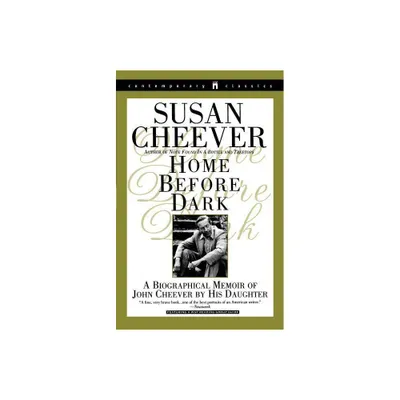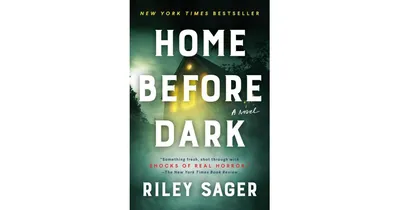Home
Home, before and after
Loading Inventory...
Barnes and Noble
Home, before and after
Current price: $12.99


Barnes and Noble
Home, before and after
Current price: $12.99
Loading Inventory...
Size: CD
*Product Information may vary - to confirm product availability, pricing, and additional information please contact Barnes and Noble
On her previous album, 2016's
Remember Us to Life
,
Regina Spektor
and her piano basked in arrangements with a full orchestra on select tracks. For her eighth studio album,
Home, before and after
, she animates ten unpredictable tracks with a combination of elegant piano accompaniment, overtly playful pop, and a return to dramatic symphonic fare, often within the same song. The set list is tied together by equally audacious lyrics that incorporate mysticism, rhetorical devices, and allegory to convey frustration with men, continual heartache, and the state of the world, but especially with being left behind. She sets the stages stylistically and thematically with "Becoming All Alone," which recounts an encounter with God near the corner Denny's restaurant. After He suggests they grab a beer (on Him), she has the opportunity to ask, "Why doesn't it get better with time?" over wistful piano and strings. An off-center drums-and-bass groove joins in as she lists further grievances leading into a
Walter Murphy
-type orchestral dance break. She ultimately doesn't get any answers, ending the song on a repeated "I'm becoming all alone again/Stay, stay, stay." Elsewhere, she bravely takes on men -- or at least one man -- with the sardonic "One Man's Prayer." Over a modest, skittering pop,
Spektor
portrays a straight man who is simply looking for love and companionship. In the process, however, his monologue shifts from "I just want some girl to love me back" to "I just want some girl beneath my feet/To tell me I'm her king/And to beg me for a ring" -- and that's just for starters. Also lyrically biting, "What Might Have Been" takes the form of a lyrical comedic theater piece with driving piano and pulsing bass drum spurring
's extensive list of things that go together (sickness and flowers, bombing and shelters, loving and hurting, lies and believing, and the hilarious "business and crying"). Parts retro-rock and earnest orchestral ballad, "Loveology" also addresses love with cynicism, ending with "Forgive me, forgive me, forgive me-ology." Along the way are such offerings as "Up the Mountain" -- improbably parts dramatic reading, hip-hop, dance track, and film score -- the graceful "Raindrops," the poignant and mystical "Coin" ("I gave a coin to a shaman....I gave a coin to a president"), and the epic, nearly nine-minute "Spacetime Fairytale" ("I know there's no such thing as time/I know there's no such thing as mine"). Odd, fun, smart, and fearless throughout,
closes on the tender "Through a Door," which explains the concept of home as a place "where the light's on no matter how long you've been gone," after everything. ~ Marcy Donelson
Remember Us to Life
,
Regina Spektor
and her piano basked in arrangements with a full orchestra on select tracks. For her eighth studio album,
Home, before and after
, she animates ten unpredictable tracks with a combination of elegant piano accompaniment, overtly playful pop, and a return to dramatic symphonic fare, often within the same song. The set list is tied together by equally audacious lyrics that incorporate mysticism, rhetorical devices, and allegory to convey frustration with men, continual heartache, and the state of the world, but especially with being left behind. She sets the stages stylistically and thematically with "Becoming All Alone," which recounts an encounter with God near the corner Denny's restaurant. After He suggests they grab a beer (on Him), she has the opportunity to ask, "Why doesn't it get better with time?" over wistful piano and strings. An off-center drums-and-bass groove joins in as she lists further grievances leading into a
Walter Murphy
-type orchestral dance break. She ultimately doesn't get any answers, ending the song on a repeated "I'm becoming all alone again/Stay, stay, stay." Elsewhere, she bravely takes on men -- or at least one man -- with the sardonic "One Man's Prayer." Over a modest, skittering pop,
Spektor
portrays a straight man who is simply looking for love and companionship. In the process, however, his monologue shifts from "I just want some girl to love me back" to "I just want some girl beneath my feet/To tell me I'm her king/And to beg me for a ring" -- and that's just for starters. Also lyrically biting, "What Might Have Been" takes the form of a lyrical comedic theater piece with driving piano and pulsing bass drum spurring
's extensive list of things that go together (sickness and flowers, bombing and shelters, loving and hurting, lies and believing, and the hilarious "business and crying"). Parts retro-rock and earnest orchestral ballad, "Loveology" also addresses love with cynicism, ending with "Forgive me, forgive me, forgive me-ology." Along the way are such offerings as "Up the Mountain" -- improbably parts dramatic reading, hip-hop, dance track, and film score -- the graceful "Raindrops," the poignant and mystical "Coin" ("I gave a coin to a shaman....I gave a coin to a president"), and the epic, nearly nine-minute "Spacetime Fairytale" ("I know there's no such thing as time/I know there's no such thing as mine"). Odd, fun, smart, and fearless throughout,
closes on the tender "Through a Door," which explains the concept of home as a place "where the light's on no matter how long you've been gone," after everything. ~ Marcy Donelson


















